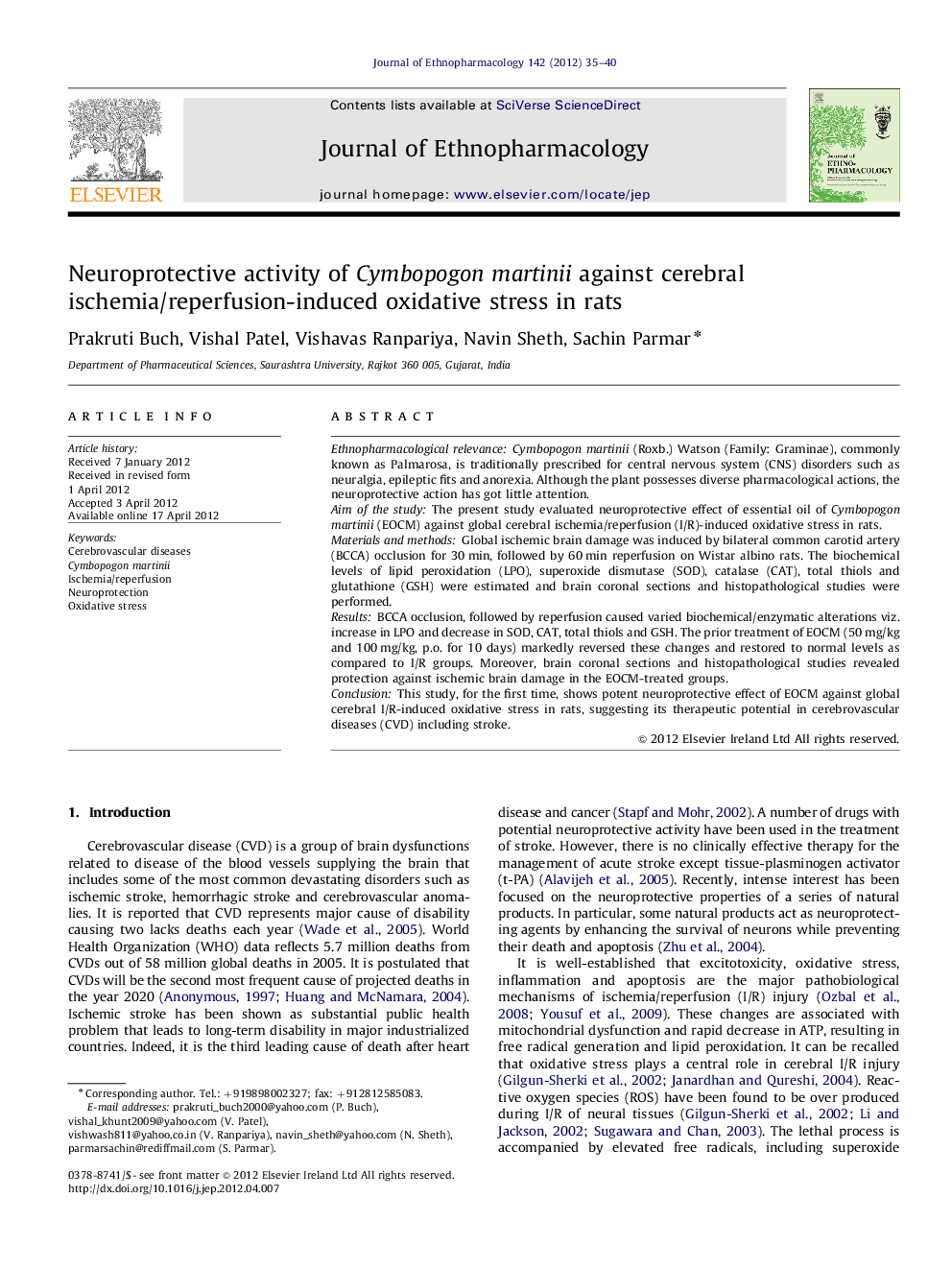| Article ID | Journal | Published Year | Pages | File Type |
|---|---|---|---|---|
| 5837717 | Journal of Ethnopharmacology | 2012 | 6 Pages |
Ethnopharmacological relevanceCymbopogon martinii (Roxb.) Watson (Family: Graminae), commonly known as Palmarosa, is traditionally prescribed for central nervous system (CNS) disorders such as neuralgia, epileptic fits and anorexia. Although the plant possesses diverse pharmacological actions, the neuroprotective action has got little attention.Aim of the studyThe present study evaluated neuroprotective effect of essential oil of Cymbopogon martinii (EOCM) against global cerebral ischemia/reperfusion (I/R)-induced oxidative stress in rats.Materials and methodsGlobal ischemic brain damage was induced by bilateral common carotid artery (BCCA) occlusion for 30Â min, followed by 60Â min reperfusion on Wistar albino rats. The biochemical levels of lipid peroxidation (LPO), superoxide dismutase (SOD), catalase (CAT), total thiols and glutathione (GSH) were estimated and brain coronal sections and histopathological studies were performed.ResultsBCCA occlusion, followed by reperfusion caused varied biochemical/enzymatic alterations viz. increase in LPO and decrease in SOD, CAT, total thiols and GSH. The prior treatment of EOCM (50Â mg/kg and 100Â mg/kg, p.o. for 10 days) markedly reversed these changes and restored to normal levels as compared to I/R groups. Moreover, brain coronal sections and histopathological studies revealed protection against ischemic brain damage in the EOCM-treated groups.ConclusionThis study, for the first time, shows potent neuroprotective effect of EOCM against global cerebral I/R-induced oxidative stress in rats, suggesting its therapeutic potential in cerebrovascular diseases (CVD) including stroke.
Graphical abstractDownload high-res image (49KB)Download full-size imageNeuroprotective effect of essential oil of Cymbopogon martinii (EOCM) against global cerebral ischemia/reperfusion damage in rats. A: normal; B: normal saline + ischemia for 30Â min; C: normal saline + ischemia for 30Â min followed by 60Â min reperfusion (I/R); D: quercetin 25Â mg/kg + I/R; E and F: 50Â mg/kg + I/R and 100Â mg/kg + I/R of EOCM respectively.
